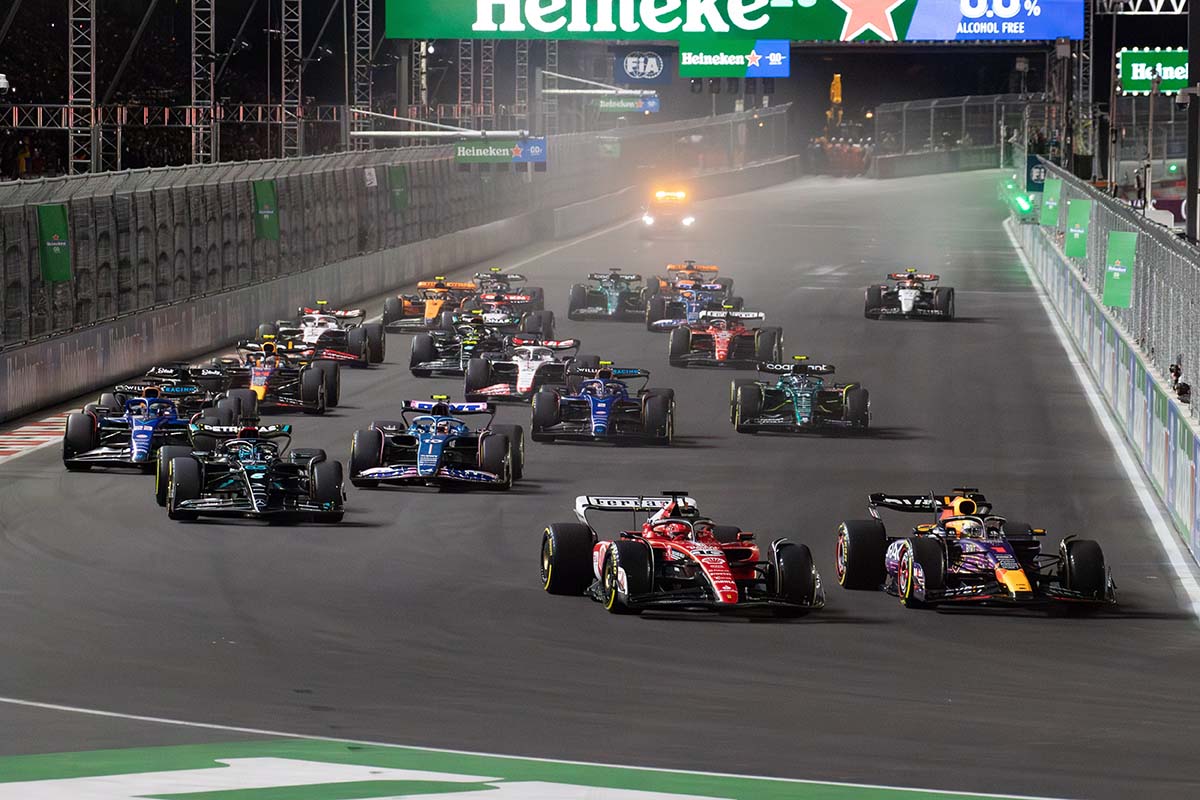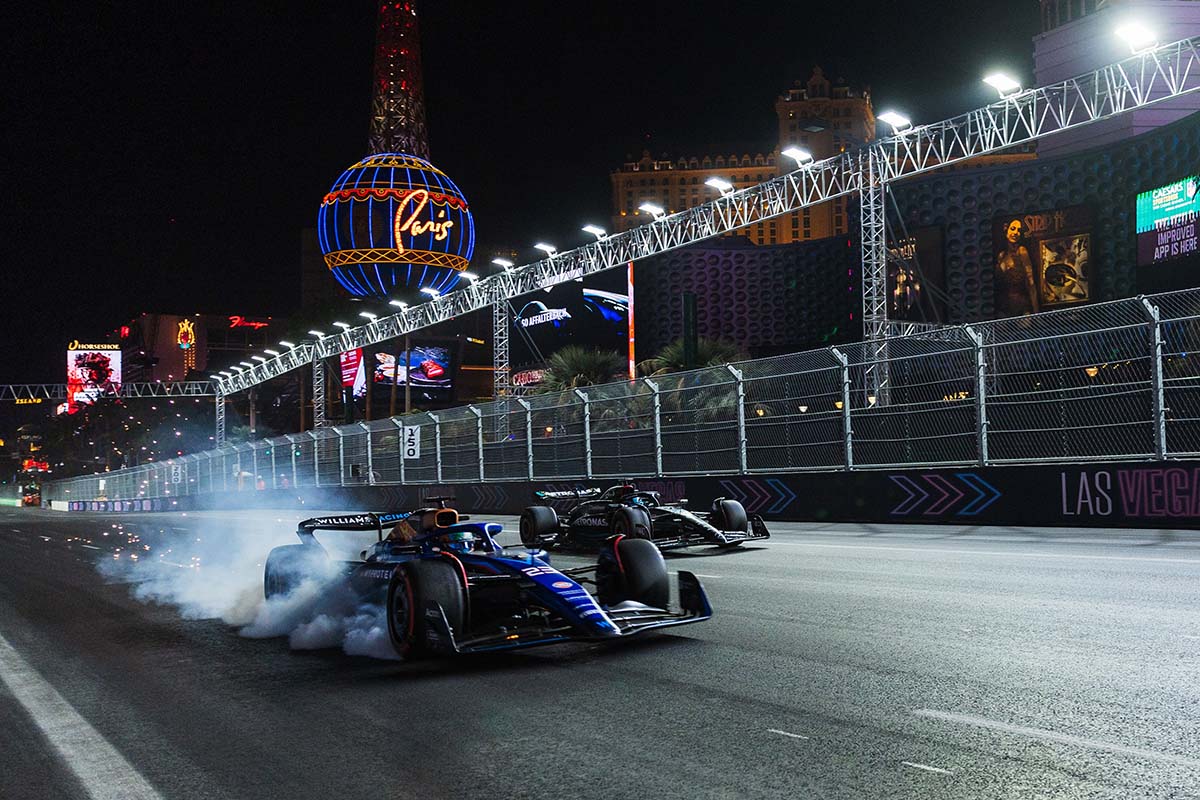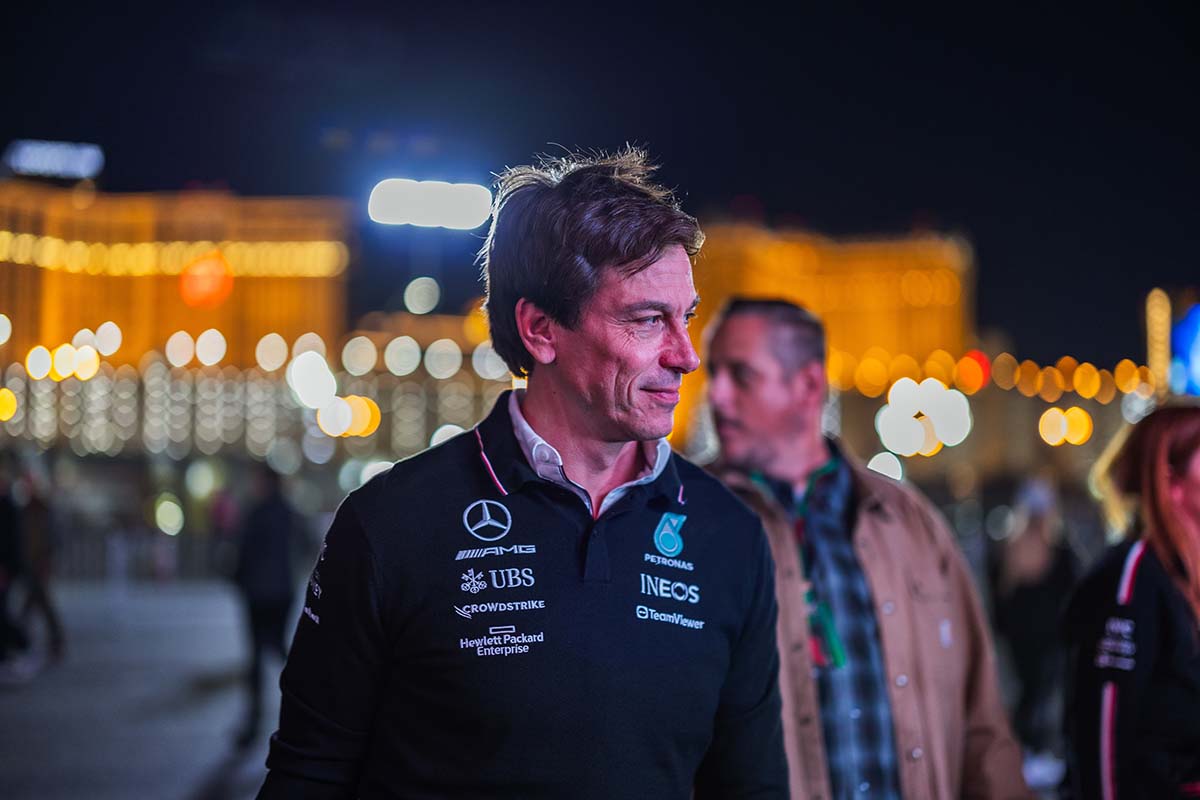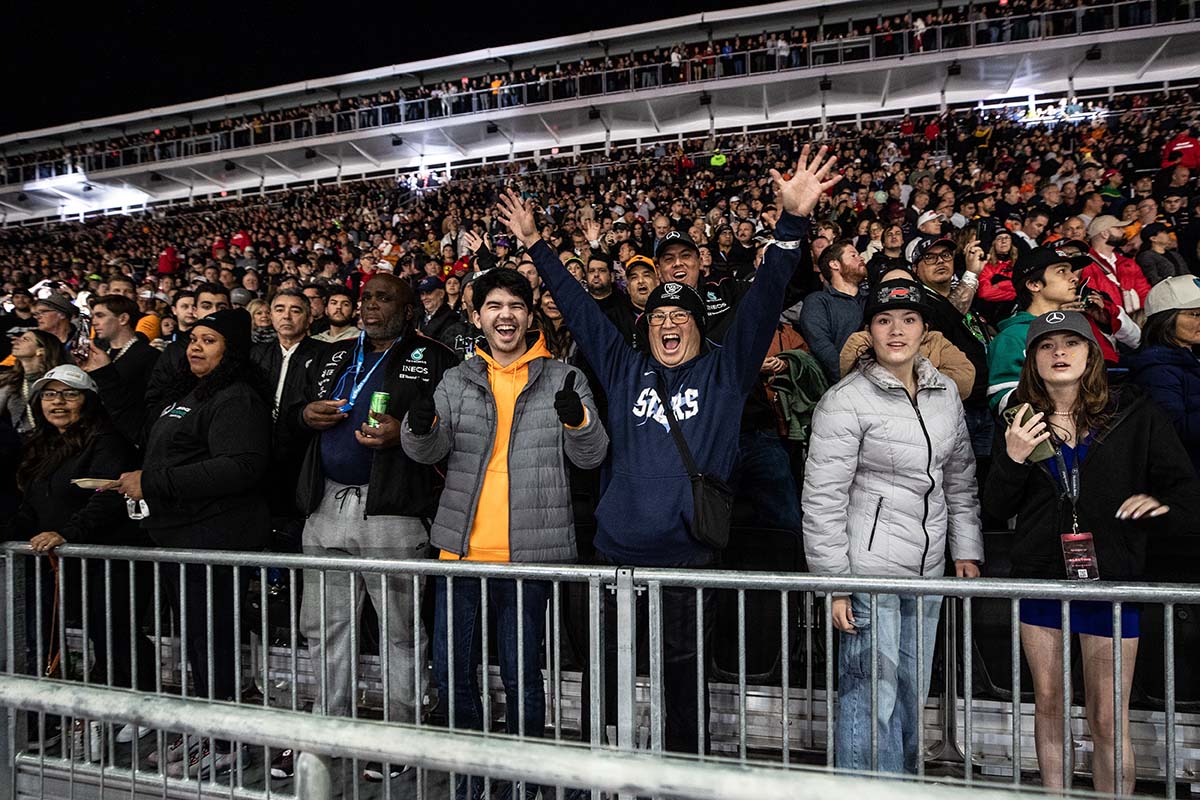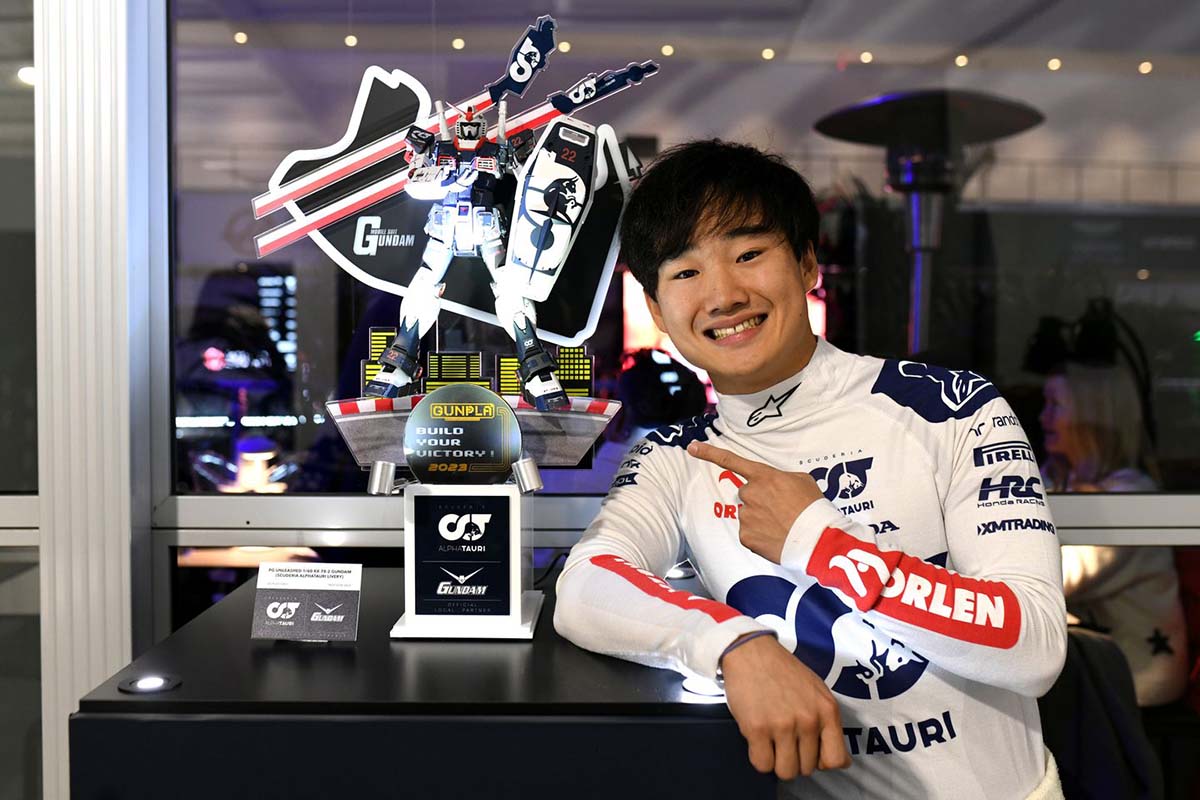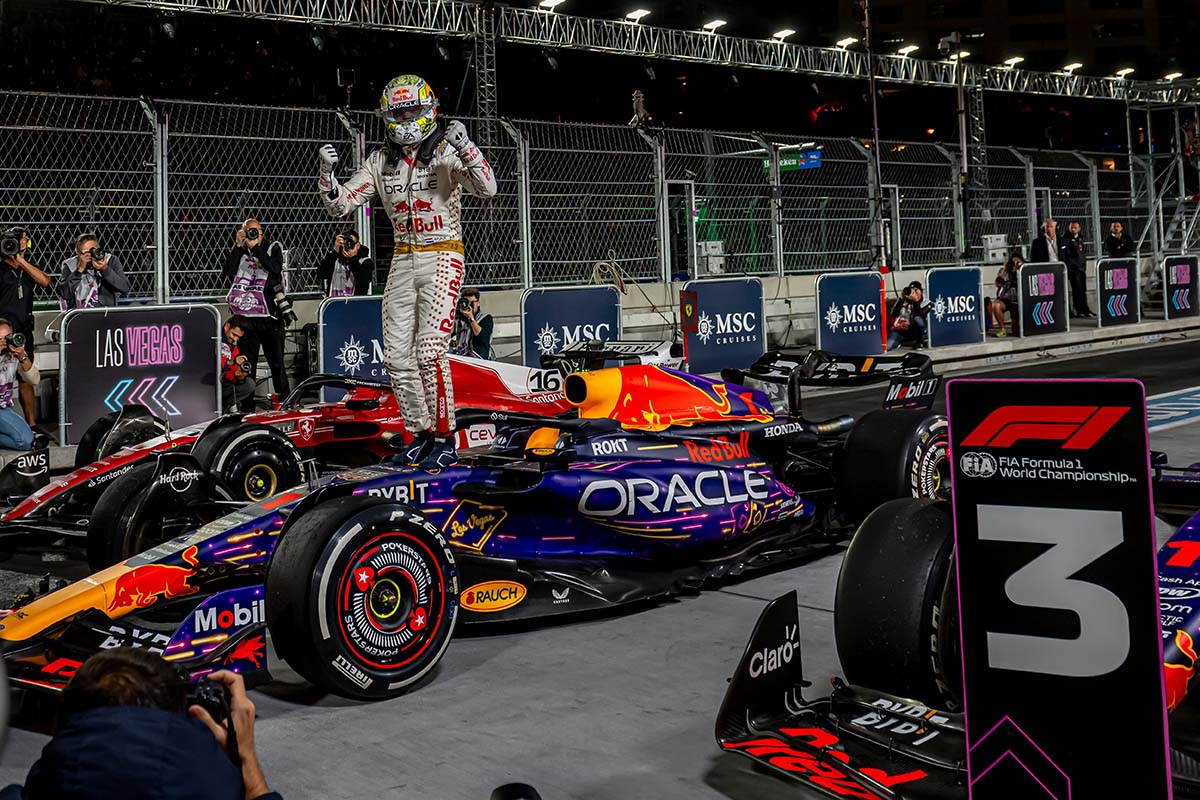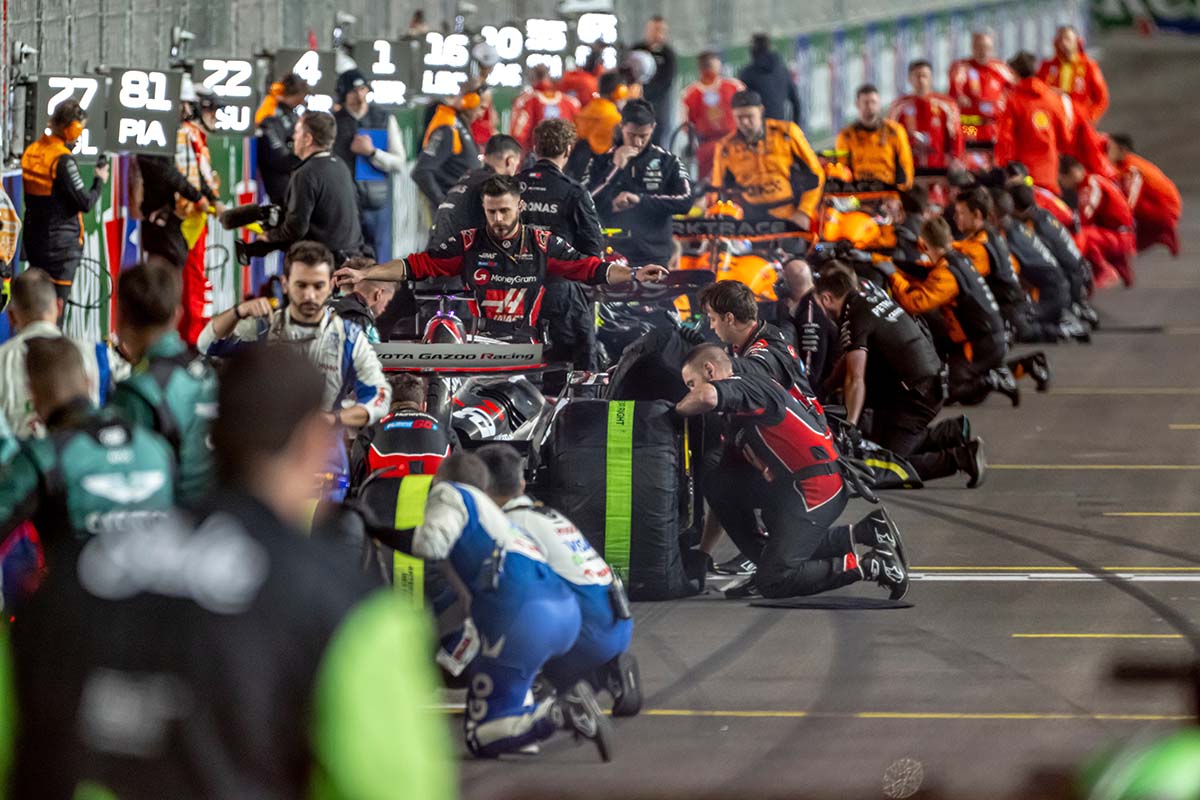Las Vegas has quickly become one of Formula 1’s most fascinating stops: a place where the sport’s pure, high-stakes racing meets an equally high-energy world of business, culture, and global influence. Toto Wolff, CEO and Team Principal of Mercedes F1, described the Las Vegas weekend as unlike anything else in F1, saying, “Racing down the Strip at night has already become an iconic part of the calendar, with the high-speed layout proving an interesting challenge and providing great racing.” It’s a Grand Prix where world-class racing sits at the center, and a powerful business ecosystem naturally builds around it — and it all begins with the track itself.
The straight that redefines speed
Las Vegas sells spectacle, but its Grand Prix delivers physics-defying reality. The now-iconic 1.2-mile blast down the Strip — one of the longest and fastest straights in Formula 1 — pushed cars to 368 km/h (229 mph) in 2024, with Alex Albon setting the season’s highest top speed. Drivers find the challenge as thrilling as it is technical: Oscar Piastri said ahead of the 2025 Grand Prix, “It’s a high-speed track, and it’s always fun to race down The Strip. The cooler conditions are an interesting variable, and the layout usually allows for plenty of overtaking.” The circuit mirrors Spa’s scale and channels the velocity profile of Monza and Baku, yet stays uniquely Vegas: long straights, big braking zones, and a layout designed to let cars roar at full throttle. It’s a race that asks teams for engine power, cooling efficiency, tire bravery — and a bit of showmanship. While the cars set the speed on the Strip, the paddock is alive with its own kind of velocity — business, connections, and culture moving fast.
The fastest business weekend in sports
If the track is all about engines and top speeds, the paddock is all about ideas, deals, and influence — moving just as fast. During Las Vegas race week, Formula 1, Liberty Media, and Las Vegas Grand Prix host the F1 Business Summit — a day-long gathering where investors, tech giants, sports executives, brand strategists, and policymakers trade insights faster than teams swap tires. Panelists stretch across every domain shaping global pop culture and business influence: Stefano Domenicali (F1), Derek Chang (Liberty Media Corp.), Susie & Toto Wolff (F1 Academy & Mercedes), Ariel Kelman (Salesforce), Emily Prazer (F1 & LVGP), Andrea Hopelain (EA Sports), Elizabeth Rutledge (AmEx), John Saw (T-Mobile), Tasia Filippatos (Disney), Carolina Dolan (Globant), and many more. These are not just keynote speakers — they’re architects of how sport, entertainment, and consumer culture now interlock. The summit’s pitch is simple: F1 isn’t just sport; it’s a cultural operating system, and Vegas is its most extravagant interface.
In the US, sport holds an incredible position – it’s cultural, a huge part of society and loved across the country, so Las Vegas is the perfect place for the F1 Business Summit.
Stefano Domenicali, President & Chief Executive Officer of Formula 1
Stefano Domenicali, President & CEO of Formula 1, emphasized the unique position of the U.S. and Las Vegas for the Summit: “In the US, sport holds an incredible position – it’s cultural, a huge part of society and loved across the country, so Las Vegas is the perfect place for the F1 Business Summit. It’s the global home of sports and entertainment and as we host our third season racing in this fantastic location, we have the momentum to connect influential speakers and guests to explore how we can work together to continue to innovate, push boundaries, and think big.”
The networking continues at the new Trackside Tavern at the Paddock Club Rooftop — a space merging sports-bar energy with luxury hospitality, giant screens, chefs’ stations, lounges, and handcrafted cocktails. Deals unfold between laps, partnerships form over espresso martinis, and the hum of a nearby V6 hybrid punctuates every conversation.
When a Grand Prix rewires a city
Las Vegas doesn’t just host the GP — it transforms around it. The inaugural edition attracted 300,000+ fans and delivered nearly $1 billion in economic impact, generating 4,500 jobs and over $280 million in wages. Hospitality crews rack up overtime, local businesses cash in on the holiday rush, and high-rolling visitors dive into a playground built for deals and spectacle. On race weekend, Vegas hits full throttle — a neon-lit engine of speed, spectacle, and opportunity. As Toto Wolff, also a successful businessman, observed, “It has drawn in both existing and new fans to our sport and I am sure will continue to do so for many years to come. The first two editions were spectacular and I am sure this year will be even bigger and better.”
National branding at 300 km/h
Few sports broadcast national identity quite like Formula 1. British engineering powers half the grid, Italian design drapes Ferrari in cultural mythology, and Middle Eastern investment (Aramco, Qatar Airways, Bahrain) underscores the Gulf’s economic diplomacy. Japan blends precision with pop culture influence — nowhere more clearly than in Las Vegas.
Japan’s influence stretched all the way to Las Vegas in 2023, bringing a touch of anime to the neon-lit Strip. AlphaTauri’s Yuki Tsunoda and Daniel Ricciardo carried decals of the RX-78-2 Gundam and XVX-016 Gundam Aerial on their headrests, a nod to Japanese pop culture and a subtle reminder of how the sport bridges global interests. Even in the heart of the Vegas spectacle, Japan’s footprint — from precision engineering to cultural storytelling — was unmistakable, evident both on the AlphaTauris and in the powerhouse Honda-Red Bull partnership.
Honda, Red Bull, and the dominance that framed Las Vegas
The inaugural Las Vegas GP in 2023 coincided with one of the most dominant seasons in F1 history, with Red Bull winning 21 of 22 races and Max Verstappen claiming 19 victories. His Vegas win — from P3, powered by Honda engineering — crystallized a partnership that blended Japanese technical excellence with Austrian racing intensity. In a city built on risk, Red Bull showed what certainty looks like.
Globalization at full throttle
Vegas is more than a race. It’s an international summit intertwined with a street circuit — a place where CEOs network beside brake ducts, where national brands project identity, and where investors map out the next decade of sports-tech convergence. As the 2025 season reaches its climax — with a three-way fight for the World Championship and just three races left — the stakes on-track mirror the stakes in the boardrooms around it. Speed is the language, influence is the currency, and in Las Vegas, both move fast.

